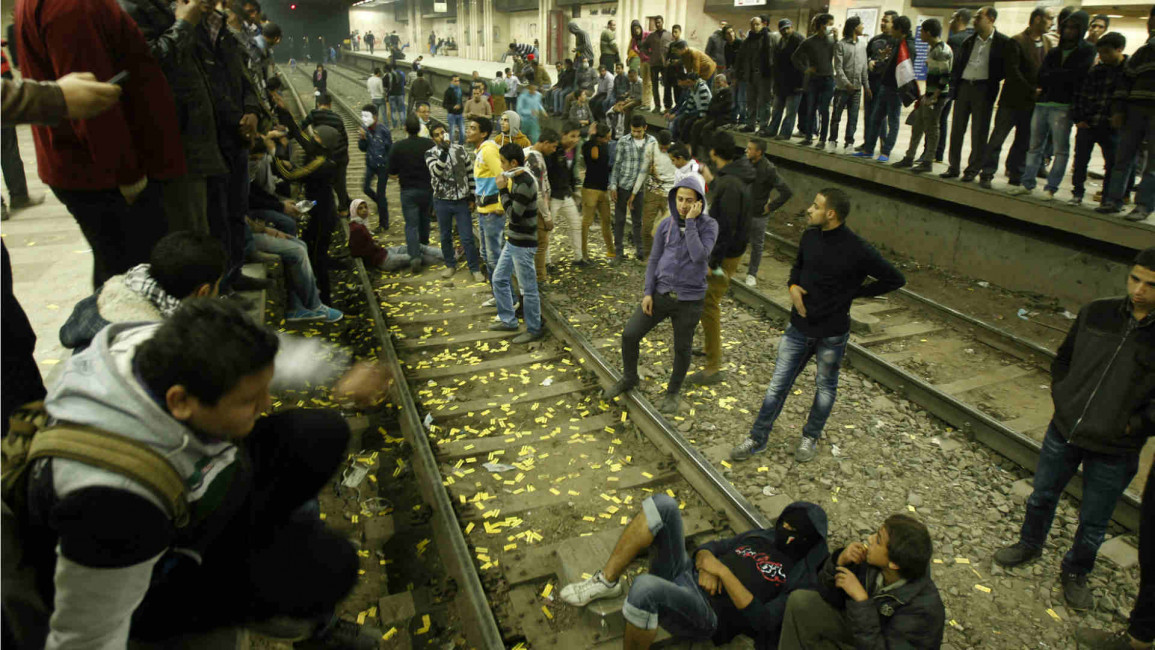Egypt deploys police outside metro stations following price protests
At least 22 people were detained on Saturday during the protests. Most were later released, with three ordered detained for 24 hours until further investigation.
However, a judicial source told Reuters that prosecutors ordered seven men and three women to be held for four days for questioning.
The 10 could face up to five years in jail if charged and convicted for illegal congregation and disturbing public order, said their lawyer Fatma Serag, who works for the Association for Freedom of Thought and Expression.
Public anger has increased in Egypt in recent months as the government presses ahead with IMF-imposed subsidy cuts as part of a 2016 loan deal.
But protests are rare in a country that as of 2013 banned demonstrations not approved by the Interior Ministry. The 2013 decision, which followed the ouster of Islamist Mohammed Morsi, took away a key win for activists after the 2011 uprising that toppled Hosni Mubarak.
Egypt's government says price hikes are needed to expand the transit network -- Cairo's metro serves more than three of the city's 25 million people daily.
“The increase will generate about 1 billion (Egyptian) pounds,” said Transportation Minister Hesham Arafat. He added that without the extra funds “the metro company cannot continue".
Twitter Post
|
Egypt's state MENA news agency said the metro is currently 617 million pounds ($34 million) in the red.
The government also hiked metro tickets last year, which prompted anger among Cairo's residents at the time.
There were no signs of new protests on Sunday or Monday, but commuter numbers appear to be down according to witnesses Reuters spoke with. Officers and security force vehicles were also seen outside several stations.
Videos circulated on social media over the weekend showed protesters chanting slogans as police watched on. Riders were also seen evading fares and hopping over ticket barriers.
Egypt's government has blamed the Muslim Brotherhood for the recent fare hike protests, and have frequently blamed the group for unrest since the 2013 military coup against the Brotherhood-aligned President Mohamed Morsi.
Officials outlawed the Muslim Brotherhood in 2013 and began a widespread crackdown targeting Islamists but also secularists and other dissidents. Tens of thousands are currently being held in state prisons.
Follow us on Twitter: @The_NewArab



